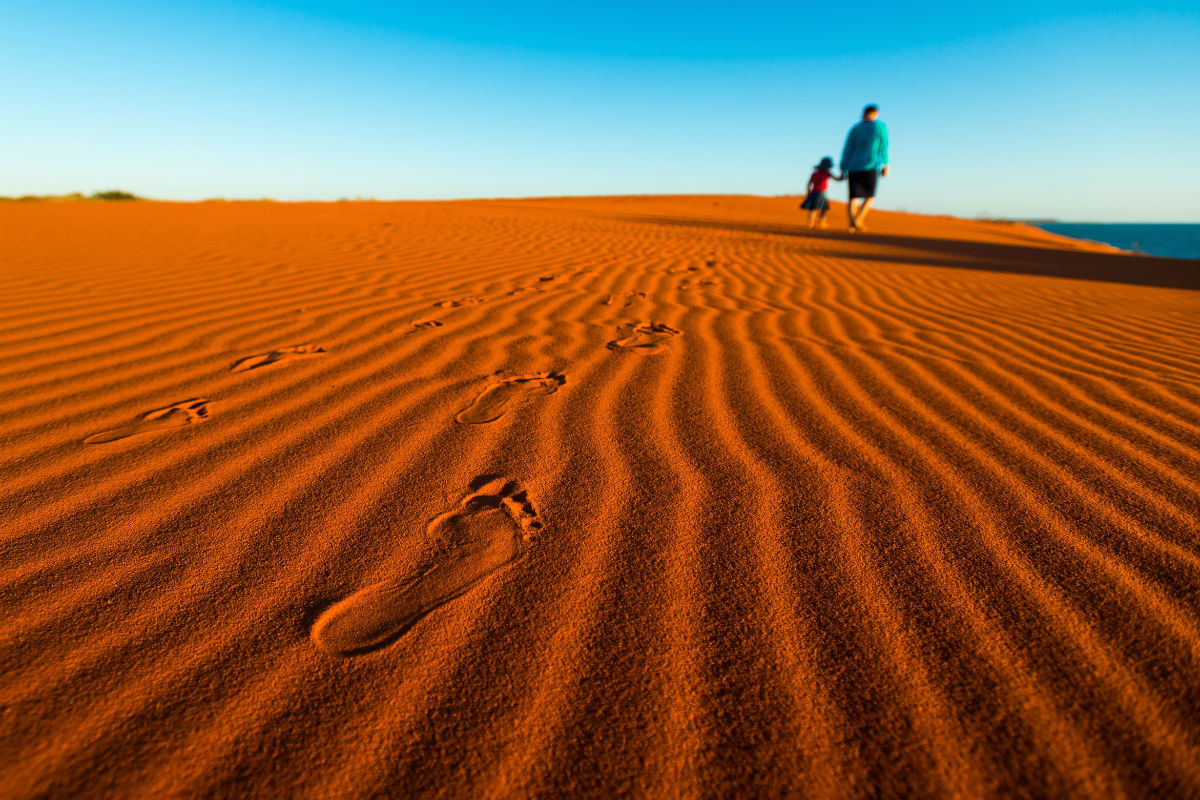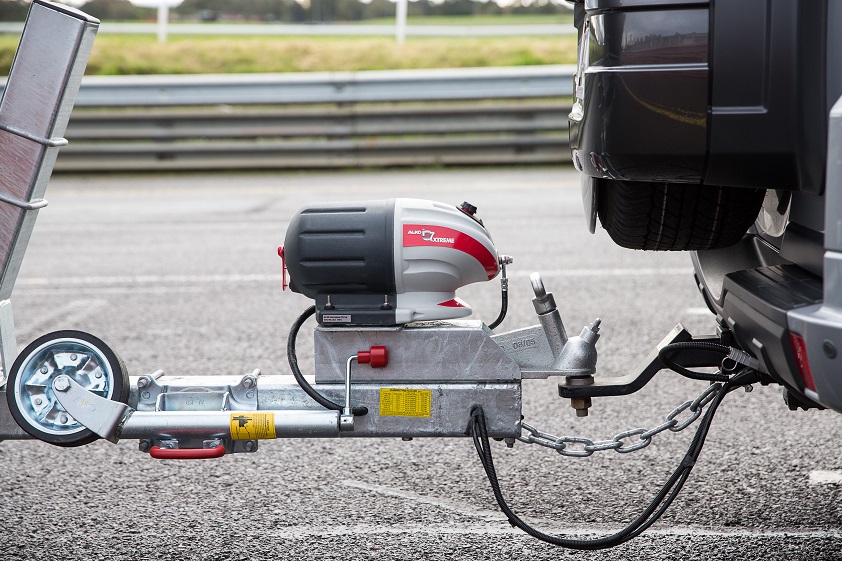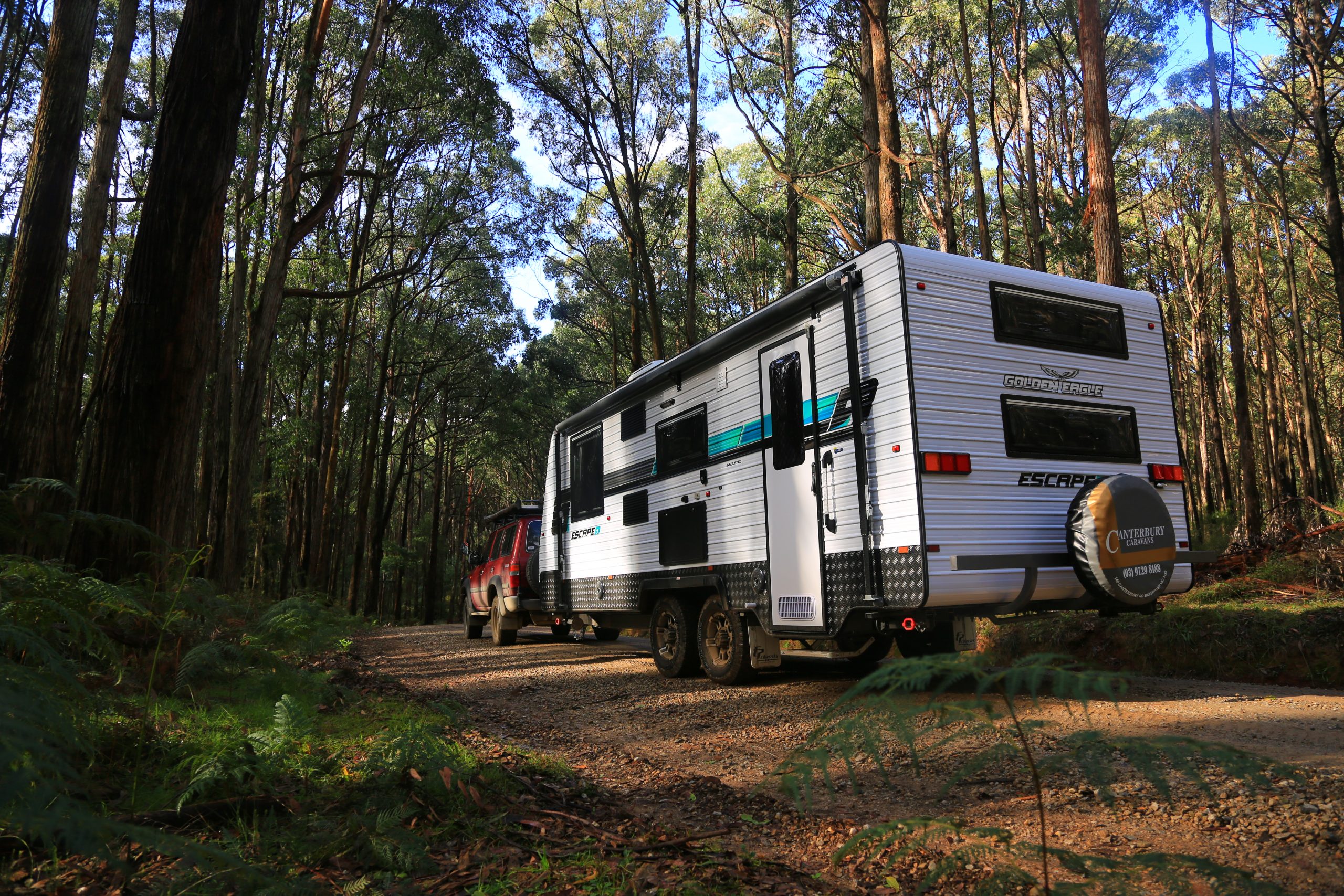Caravanning is all about enjoying Australia’s pristine natural environment, and by following these simple steps you can do your bit to help protect it.
When it comes to treading gently when we travel, less truly is more. The big four – using less fuel, less power, less water and generating less waste and rubbish – are easier to achieve than you might think and can hugely affect your impact on local environments, wildlife and even climate change. Want to change your daily habits? Try putting these ideas into action today.
1. Shop smarter
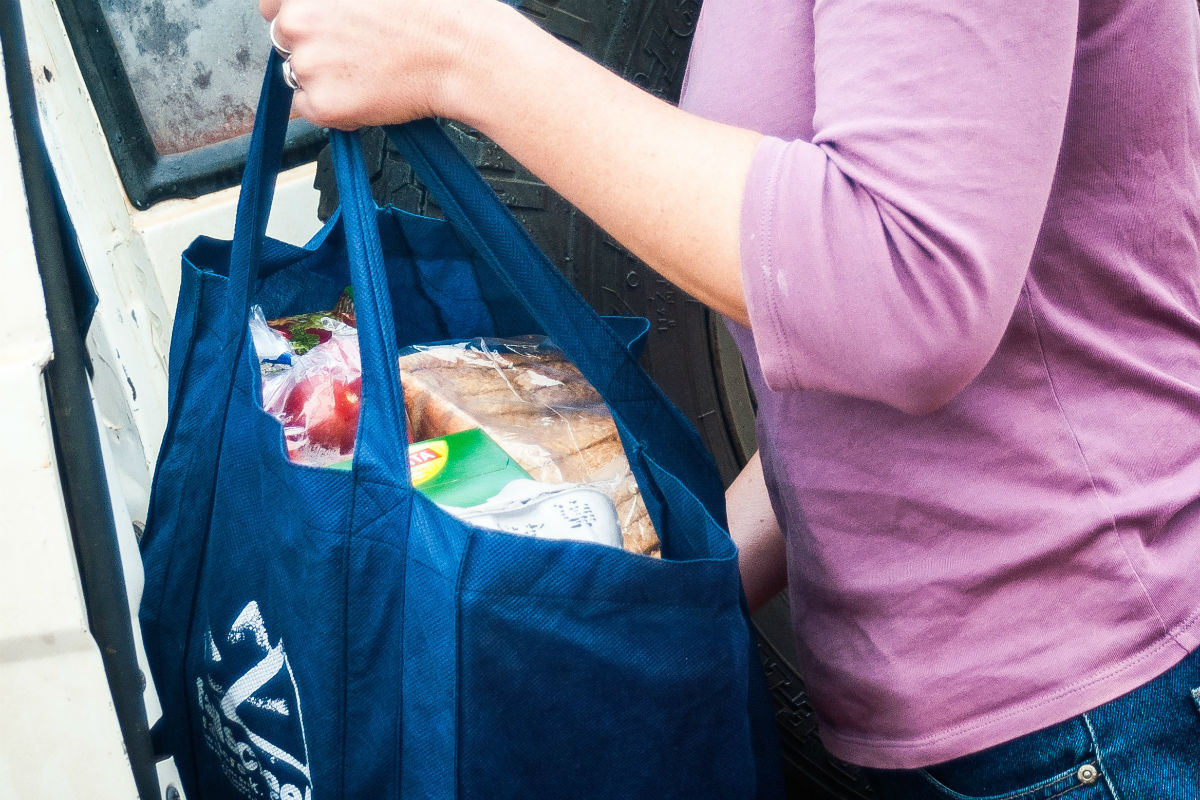
Refusing plastic shopping bags at the checkout is the first step; choosing plastic-free food is the next. Anything packaged in recyclable bottles, tins, cardboard cartons and boxes is a much cleaner, earth-friendly choice than plastic, which is difficult to recycle and rarely biodegradable. It’s easy and affordable to switch to recycled, unbleached paper products, too: toilet paper, paper towel, notepads, cards and envelopes.
To take it further, switch to rechargeable batteries and solar-powered torches and lanterns. Choose a refillable gas bottle to fuel your cooker (instead of disposable butane cartridges) and buy natural, biodegradable soap, shampoo and kitchen and laundry detergents. Download books on a kindle or purchase them second-hand in charity stores, and pass them on when you’re done.
2. Power down
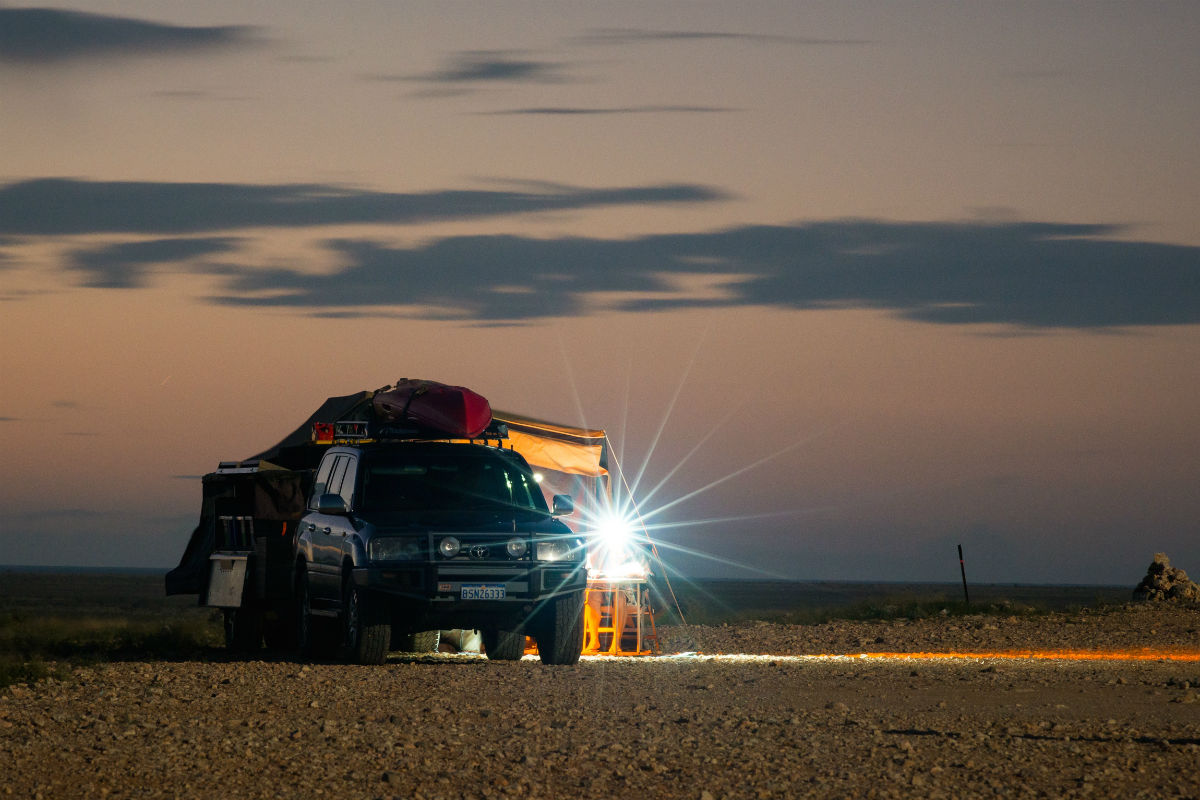
Aim to make your rig as self-sufficient as possible so that you can spend more time off the grid instead of plugged into mains power in a holiday park. That means installing solar panels, a generous bank of deep cycle batteries and perhaps a micro wind generator, too. Do that and you’ll not only save yourself big bucks on campsite fees and generator fuel, but your quiet campground neighbours will love you for it.
Since you’ll be making and using your own power, you’ll want to switch to LED lights and the most energy-efficient appliances you can afford, and reconsider your need for those home appliances that deplete your power supply, like coffee machines, bread makers and microwaves. Save on heating by taking shorter showers and using cold water to wash your clothes.
3. Slow down
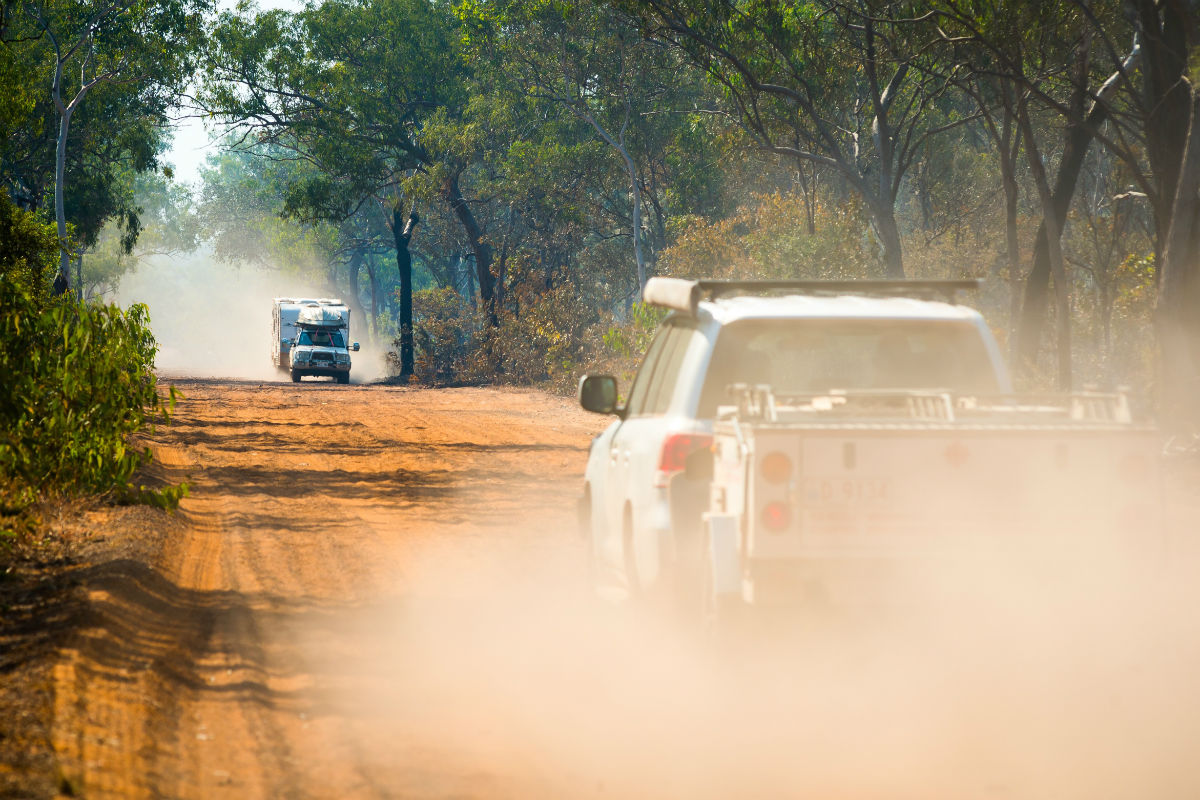
Use less fuel, create less carbon emissions and save yourself a bundle simply by slowing your travels, reducing your speed and covering fewer kays each day. Reconsider what’s on your roof and see if you can reduce your vehicle’s drag. Keep your tyres inflated to the maximum recommended pressure on the bitumen and service your vehicle regularly to keep it running smoothly. If you can, fill up with bio-diesel.
4. Go local and eat organic
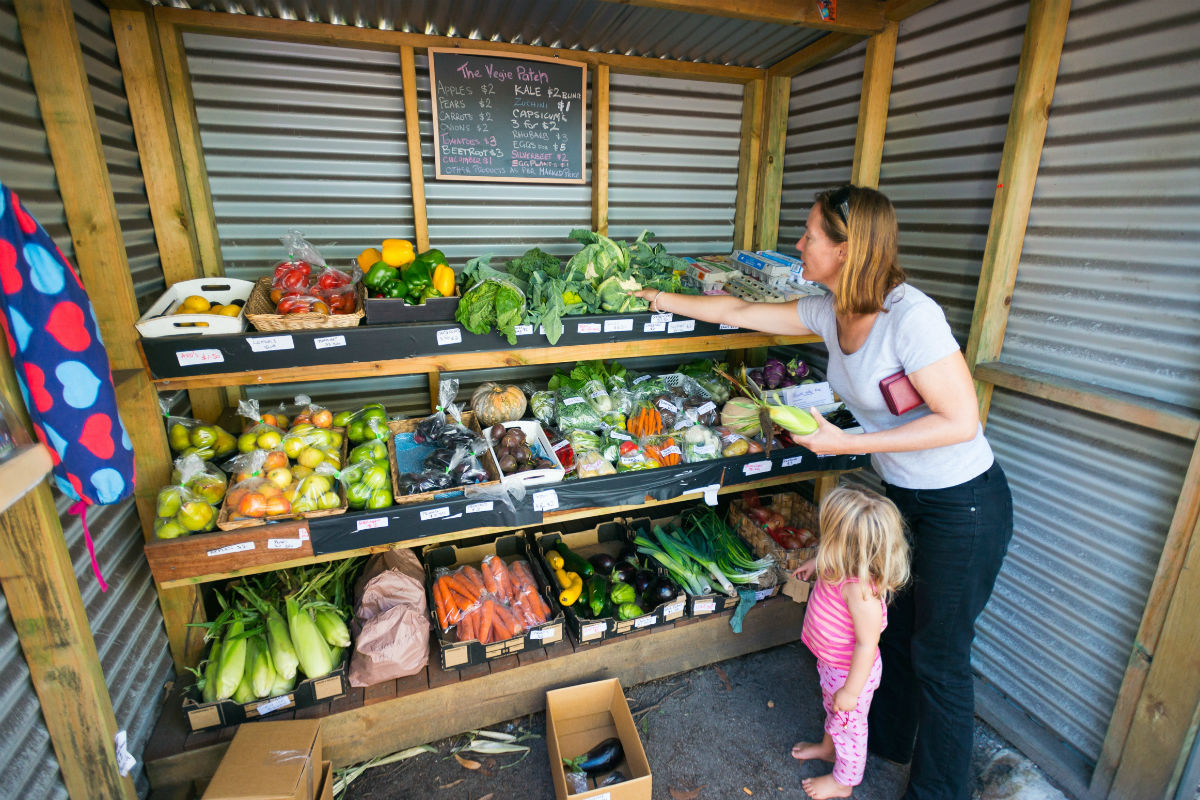
Consider your food’s fuel bill, too. Buying locally grown food with fewer ‘food miles’ slashes the fuel required to transport and refrigerate it, and you’ll enjoy fresher, more nutritious and tastier produce as a result. And of course, you’ll also be supporting the local farmers and retailers in the community you’re visiting. Where possible, choose organic food which uses less fossil fuels to produce, uses no energy-intensive artificial fertilisers, pesticides and chemical feeds, and contributes less nitrogen into the environment, thanks to the absence of fertilisers.
Hoard your water

Using less water starts with reconsidering how (and how often) you shower: cutting back on soap and shampoo means quicker showers and less waste water you’ll need to store on board, too. To help with your hoarding, install water-saving showerheads and low-flow taps in your rig, and never miss a rain shower: rig up your RV awning to catch and channel rainwater directly into your water tank or jerry cans.
In the kitchen, wipe messy, oily pots and pans with a paper towel before washing to reduce water and detergent use. Capture the water that flows while you’re waiting for the hot water to kick and use it to fill your kettle (in the kitchen) and your hand-operated washing machine, too. Long-term, consider modifying your rig to redirect grey water from the sink and shower to flush your toilet.
Just because you are staying in a holiday park doesn’t mean you should forget your water-wise habits (a running tap can drain up to 16L of water per minute). Always press the half-flush button on the toilet and consider whether you really need to wash down your vehicle or van. If you must, using less detergent and more elbow grease reduces the amount of water you’ll require to rinse off the suds.
6. Recycle, recycle, recycle
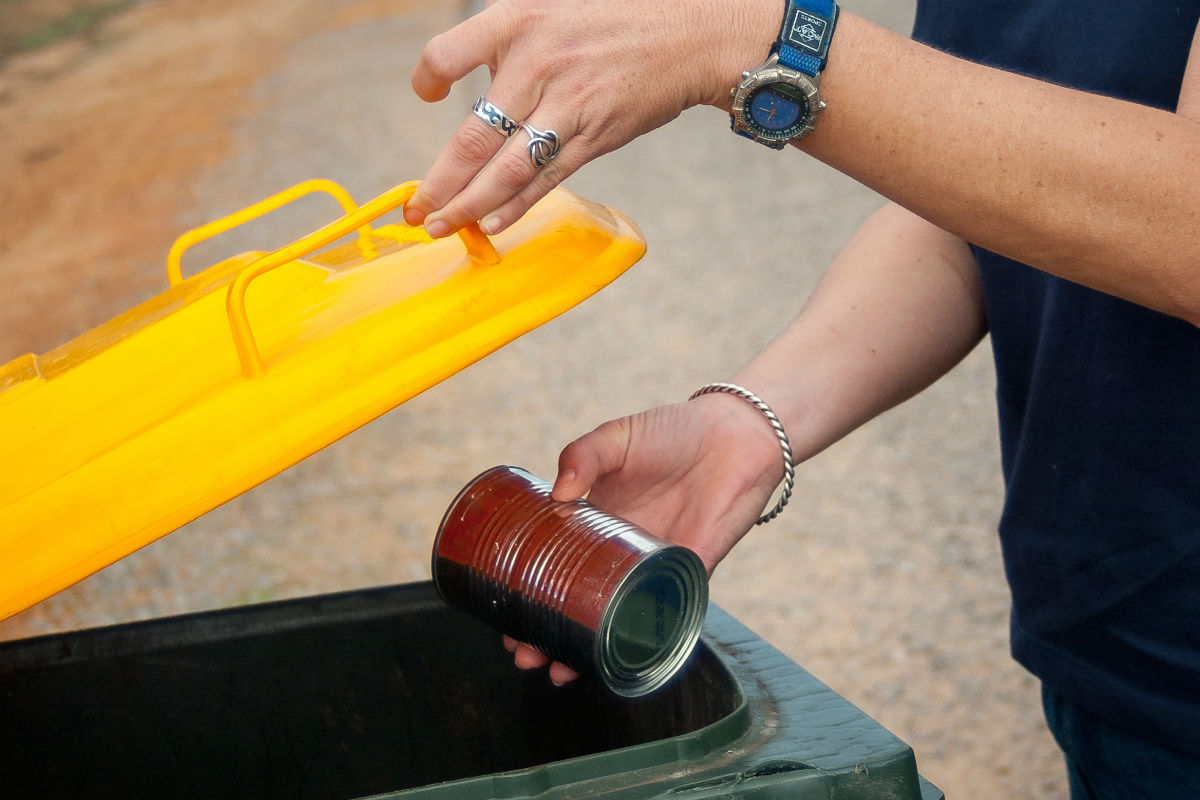
Tracking down recycling bins in remote travel destinations is not always easy, so if you’re a committed recycler, you’re going to have to store your tins, glass jars, cardboard and more until you hit town. Recycling is not only one of the very best things you can do as a traveller, it also forces us to take stock of just how much waste we are responsible for on a daily basis. Used batteries are an environmental nightmare, especially when they are ditched in the wilderness or left by the roadside. Make the effort to take your dead vehicle and caravan batteries to a council rubbish disposal station, and take old mobile phones to any retail phone store for recycling.
7. Green cleaning

Vinegar and bicarbonate of soda – two of the cheapest and safest ingredients around – are all you need to clean bench tops, toilets, showers and floors. Sprinkle any surface with bicarb, spray with a 50/50 blend of vinegar and water, watch it fizz, then wipe or scrub clean. When mothballing the caravan after a big trip, I spray and wipe all hard surfaces with my vinegar mix, then follow with a mould-resistant blend of 1/2 tsp of clove oil and 1L of water and leave to dry.
8. Respect Aussie wildlife
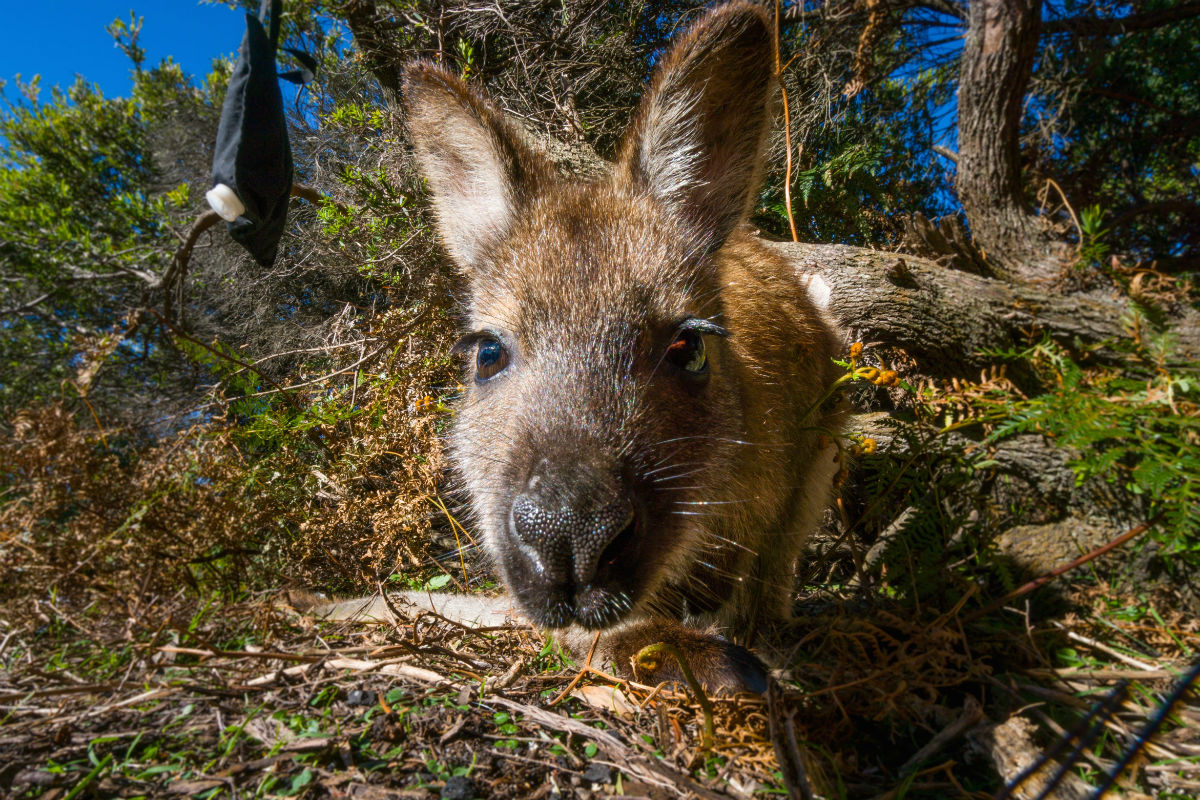
Whether you actually feed the wildlife with an open palm or are just careless with your rubbish bags, providing nocturnal critters with a meal can be disastrous for their health and their ecosystems. Camp-fed animals tend to hang around, becoming pests and putting themselves at risk of being hit by vehicles and attacked by travelling pets.
Never lure animals with food just so that you can get a good photo and never enter a national park with pets on board. Protect native vegetation by sticking to walking trails and 4WD tracks, and show respect for historical and Indigenous cultural sites by looking, but never touching structures and artifacts.

